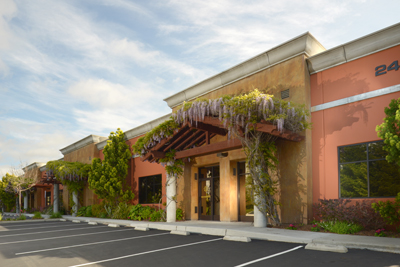Forensic Services
The Forensic Services Division includes the Crime Laboratory and Property and Evidence, situated in a state-of-the-art building which includes a new laboratory, evidence facility, morgue and other support facilities, located at Sheriff’s Headquarters in Santa Cruz.
The Forensic Services Director manages several professional classifications including Forensic Services Supervisors, Criminalists and Property and Evidence Clerks.
CRIME LABORATORY SECTION
The Crime Laboratory section is staffed by criminalists specializing in latent print examination, computer forensics and crime scene investigation. Additional disciplines may be added in the future depending on funding opportunities and demand for services.
Latent Prints
The Santa Cruz County Sheriff’s Office maintains a local database of searchable fingerprints and palm prints known as AFIS (Automated Fingerprint Identification System). The latent print examiners search latent prints through the local database, as well as the California Department of Justice and FBI. Latent print examiners also process evidence in the laboratory using a variety of scientific techniques to detect latent prints.
Digital Evidence
Criminalists specializing in computer forensics process and analyze data on computers, cell phones and other digital media. Due to the proliferation of electronic devices and social media, computer forensics figures prominently in the investigation of all types of crimes.
Crime Scene Investigation
Criminalists respond to major crime scenes, such as homicides, sexual assaults or other crimes where scientific evidence is present to establish the factual basis of what occurred and to identify the persons involved. Criminalists are responsible for locating, documenting, collecting and packaging evidence at crime scenes. Methods used to process and evaluate crime scenes include photography, video, diagramming and the use of forensic casting materials, powders, light and chemicals to recognize forensic evidence. Criminalists also work closely with a Forensic Pathologist and Coroner Detectives on homicides and other criminal death investigations.
Training
Forensic Services provides training to local law enforcement agencies on a wide variety of applied forensic issues and publishes a monthly training bulletin available to all local law enforcement agencies.
PROPERTY AND EVIDENCE SECTION
The Property and Evidence Section is responsible for the intake, storage and disposition of all evidence seized by the Sheriff’s Office and property held for safekeeping.
 Forensic Sciences Facility
Forensic Sciences Facility